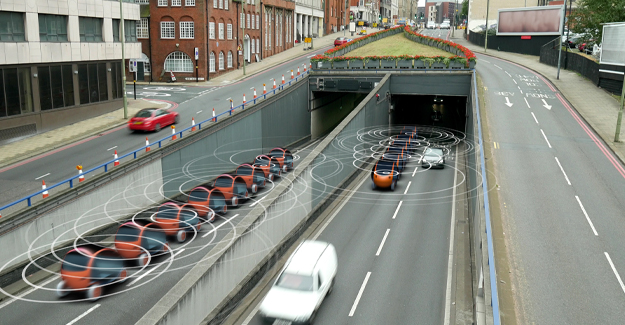Chancellor bows to pressure and cuts fuel duty
Commenting on the 2011 Budget, Professor Stephen Glaister, director of the RAC Foundation said:
“The Chancellor has done the simple and correct thing in cutting fuel duty immediately and 34 million drives will welcome this. He is also right to link the fuel escalator to the underlying price of oil rather than use above inflation rises to indiscriminately raise money from motorists who effectively have no choice other than to run their cars.
“It is also welcome that the Government is addressing the need for a proper price for carbon to make energy policy coherent and effective. However motorists are already paying over the odds for the environmental damage they do so calls to hike fuel duty for green reasons are misplaced.”
ENDS
Extract from the Budget document relating to fuel:
Duties and North Sea oil and gas
1.144 The Government is committed to fair duties and taxes which contribute to deficit reduction while supporting households and businesses. Recognising the impact of record pump prices, the Government announces a £1.9 billion package to ease the burden on motorists.
Motoring
1.145 In recognition of high current oil prices, fuel duty will be cut by 1 penny per litre from 6pm today.
1.146 The Government will abolish the fuel duty escalator and replace it with a fair fuel stabiliser. When oil prices are high, as now, fuel duty will increase by inflation only. UK oil and gas production is more profitable at such times, so it is fair that companies should contribute more. The Supplementary Charge on oil and gas production will therefore increase to 32 per cent from midnight tonight.
1.147 In addition, to ease the burden on motorists, the 2011-12 inflation-only increase in fuel duty will be deferred to 1 January 2012. The 2012-13 increase in fuel duty will be implemented on 1 August 2012.
1.148 In future years, if the oil price falls below a set trigger price on a sustained basis, the Government will reduce the Supplementary Charge back towards 20 per cent on a staged and affordable basis while prices remain low. Fuel duty will increase by RPI plus 1 penny per litre in each such year. The Government believes that a trigger price of $75 per barrel would be appropriate, and will set a final level and mechanism after seeking the views of oil and gas companies, and motoring groups.
1.149 As the increased rate of Supplementary Charge will only apply when prices are high, the Government will restrict tax relief for decommissioning expenditure to the 20 per cent rate to avoid incentivising accelerated decommissioning. There will be no restrictions to decommissioning relief below this level over the course of this Parliament, and the Government will work with the industry with the aim of announcing further, longer-term certainty on decommissioning at Budget 2012. Recognising the importance of continued investment in the North Sea, including in marginal gas fields, the Government will also consider with the industry the case for introducing a new category of field that would qualify for field allowance.
1.150 This Budget announces three further steps to support motorists:
• vehicle excise duty rates will increase by RPI indexation only in 2011-12, and rates for Heavy Goods Vehicles will be frozen;
• for motorists who are required to use their own vehicle for work, the Approved Mileage Allowance Payments (AMAPs) rate will rise to 45 pence per mile for the first 10,000 miles and 25 pence per mile thereafter. In addition to claiming AMAPs rates, an allowance for passenger payments currently in place for business employees, at 5 pence per passenger per mile, will be extended to volunteers; and
• the Government has today formally submitted a derogation request to the European Commission for a rural fuel duty rebate pilot scheme.
This is intended to deliver a 5 pence per litre duty discount on petrol and diesel across the Inner and Outer Hebrides, the Northern Isles, the islands in the Clyde and the Isles of Scilly.
1.151 To encourage businesses to use ultra low carbon cars, the Government will freeze Company Car Tax for cars emitting less than 95g/km from April 2013. The Government will increase Company Car Tax for all vehicles with carbon dioxide emissions between 95g/km and 219g/km by 1 percentage point from the same date.


